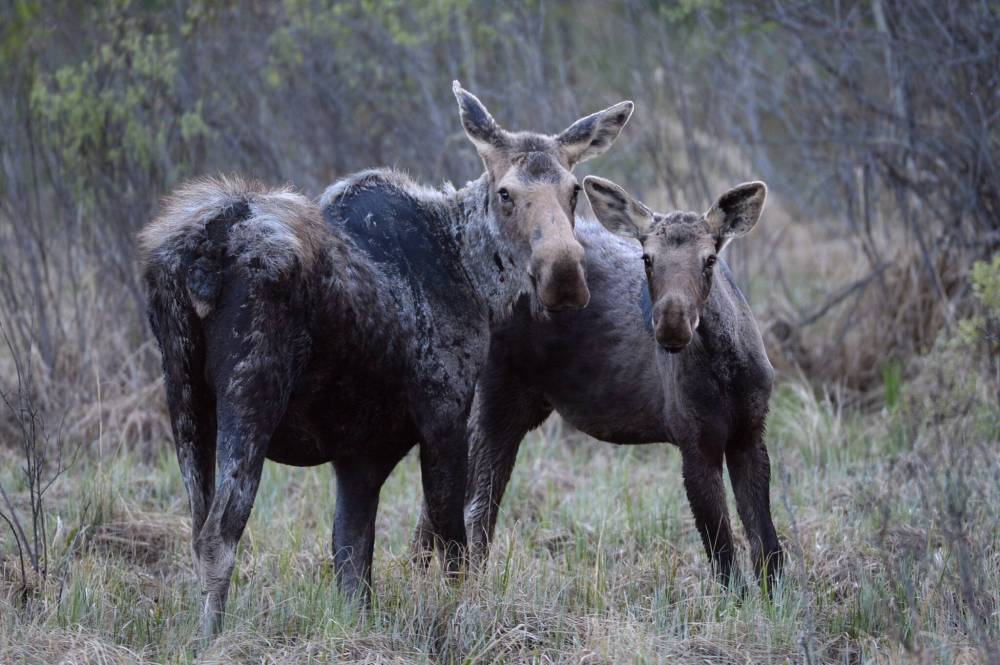Only moratorium can save moose population: MWF
Manitoba Métis Federation disappointed wildlife federation did not consult them
Advertisement
Read this article for free:
or
Already have an account? Log in here »
To continue reading, please subscribe:
Monthly Digital Subscription
$1 per week for 24 weeks*
- Enjoy unlimited reading on winnipegfreepress.com
- Read the E-Edition, our digital replica newspaper
- Access News Break, our award-winning app
- Play interactive puzzles
*Billed as $4.00 plus GST every four weeks. After 24 weeks, price increases to the regular rate of $19.00 plus GST every four weeks. Offer available to new and qualified returning subscribers only. Cancel any time.
Monthly Digital Subscription
$4.75/week*
- Enjoy unlimited reading on winnipegfreepress.com
- Read the E-Edition, our digital replica newspaper
- Access News Break, our award-winning app
- Play interactive puzzles
*Billed as $19 plus GST every four weeks. Cancel any time.
To continue reading, please subscribe:
Add Winnipeg Free Press access to your Brandon Sun subscription for only
$1 for the first 4 weeks*
*$1 will be added to your next bill. After your 4 weeks access is complete your rate will increase by $0.00 a X percent off the regular rate.
Read unlimited articles for free today:
or
Already have an account? Log in here »
The Manitoba Wildlife Federation is calling for a moose-hunt moratorium in two parts of the province after aerial surveys showed “significantly declining” numbers of the animal.
“The populations may never bounce back,” the federation’s Chris Heald said Tuesday.
The advocacy group representing sport hunters and anglers issued a news release calling for the complete closure of the fall moose hunt in Duck Mountain and Porcupine Forest. It follows Manitoba Conservation’s 2023 aerial survey results, which indicate “significantly declining moose populations” in the game-hunting areas in western Manitoba.

Jonathan Hayward / THE CANADIAN PRESS FILES
Manitoba Conservation’s 2023 aerial survey indicated “significantly declining moose populations” in game-hunting areas in western Manitoba.
It wouldn’t be the first time for a moose conservation closure there. In 2011, licensed and Indigenous hunters supported a full closure of the moose hunt after a 2010 survey the showed moose population had fallen in both areas to 2,471 animals.
After more than a decade, and surveys that showed the moose population in Duck Mountain and Porcupine Forest was beginning to recover, a limited Indigenous harvest was allowed in 2022 by permit.
The results of 2023 aerial surveys released earlier this summer showed the moose population fell to 1,578 — well below the 2010 numbers that triggered the full closure of the hunt.
Moose survival can be impacted by climate change, changing landscapes, predation, disease, ticks and development in remote areas, Heald noted.
“The harvest is one of the only things we can control,” he said, adding that’s why the federation has formally asked Natural Resources and Indigenous Futures Minister Ian Bushie to impose a moratorium on all moose hunting in those areas.
On Tuesday, the minister wasn’t made available for an interview but issued a statement that committed to protecting moose without committing to a moratorium.
“We’re committed to protecting moose in the Duck and Porcupine Mountain regions by working with hunters, First Nations, communities, and conservation groups on long-term solutions,” it said.
“The last (Tory) government cut scientists, conservation officers and funding for wildlife management. Our government is restoring capacity in the department and making evidence-based decisions that draw on both research and traditional knowledge.”
Progressive Conservative Leader Obby Khan echoed the MWF’s call for the moratorium.
“Manitobans of all backgrounds rely on hunting for a connection to tradition, to the land and as a source of food,” Khan wrote in a letter to Premier Wab Kinew posted online Monday. Khan called on Kinew to institute a conservation closure in Duck Mountain and Porcupine Forest areas.
“It is within your power to enact this and you must,” he wrote.
The Manitoba Métis Federation said moose hunters in Duck Mountain and Porcupine Prairie are following provincial recommendations.
“The province does the modelling, they do the surveys and analysis,” Peter Fleming, minister of natural resources for the MMF said from Minitonas, near Duck Mountain.
“They manage the numbers and set the number that they feel can be sustainably harvested without hurting the population. Last year, we did a limited harvest and there’s been no change.”
The MMF issued moose tags for hunting parties with at least four people to harvest one bull moose, Fleming said.
“I am a conservationist and I do want what’s best for wildlife,” he said, adding it’s disappointing that the wildlife federation didn’t reach out to the Métis federation with concerns about the moose population before issuing a news release.
“We’re on the same page on conservation and we do have common ground. Why can’t we work together?”
Members of the public could be left with the impression that Indigenous hunters aren’t responsible or accountable, Fleming said.
“There could be animosity to Indigenous harvesters that have been endorsed by the province,” he said.
Heald said Wednesday that the wildlife federation did reach out to the Manitoba Métis Federation before issuing its news release but their concerns were dismissed.
carol.sanders@freepress.mb.ca

Carol Sanders
Legislature reporter
Carol Sanders is a reporter at the Free Press legislature bureau. The former general assignment reporter and copy editor joined the paper in 1997. Read more about Carol.
Every piece of reporting Carol produces is reviewed by an editing team before it is posted online or published in print — part of the Free Press‘s tradition, since 1872, of producing reliable independent journalism. Read more about Free Press’s history and mandate, and learn how our newsroom operates.
Our newsroom depends on a growing audience of readers to power our journalism. If you are not a paid reader, please consider becoming a subscriber.
Our newsroom depends on its audience of readers to power our journalism. Thank you for your support.
History
Updated on Wednesday, September 24, 2025 9:13 AM CDT: Adds comment from Heald






